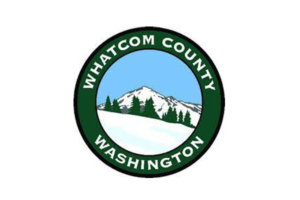The word interview typically brings to mind a discussion for the purposes of hiring, or a type of conversation that journalists have in order to write an article. Interviews are not often regarded as a tool for the development of business strategy. Yet the act of intentionally asking another person questions, either in person or over the phone, is powerful in conveying context, details and information that might not otherwise be documented and that play importantly in shaping NVA’s recommendations.
Community collaboration is critical to every regional food system, so it is imperative to understand the unique relationships that form the networks that bring food from the field to the mouths of regional consumers. Gathering this qualitative information helps to determine whether a new business venture may be possible. The knowledge we gain from interviews can ground the business analysis in a context that does not come through from surveys and secondary research, and ensures that the operating model we recommend reflects the goals and capacities of producers and buyers. These conversations also ensure that the excess capacity of farmers and other actors in the food system are identified, leading to collaboration with existing efforts within a region.
For these reasons, NVA always includes interviews in our project plans. After completing interviews for more than 50 projects, we have found 4 powerful ways that interviews can help develop regional food systems:
1. Interviews can communicate problems facing regional food system stakeholders, and suggest potential solutions.
Great businesses solve a problem for their customers in a creative and/or convenient way. The problems facing many small to mid-sized regional producers are varied and geographically specific and therefore cannot be solved with a one-size-fits-all approach. To uncover a relevant and appropriate solution, we strive to understand the origin and nuances of these barriers, and to decipher the demands of potential customers. Sometimes the solutions themselves start to emerge as we talk about food system obstacles with regional stakeholders. A question we ask to encourage creativity is to ask, “If you had a magic wand and a blank check, how would you improve your food system?” Once the silent pause settles (a common side effect of asking adults to use their imagination), the answers that follow can lead us to potential strategies to investigate.
Providing food system stakeholders the opportunity to suggest potential solutions to the problems they face can increase the likelihood that they take advantage of the solutions that emerge. In general, these intentional conversations make sure that a proposed solution can be developed in a form that is convenient and suitable for its customers on both sides of a food transaction (both the production and consumption components of a value chain).
2. Interviews elaborate upon and complement data gathered through surveys and secondary research.
Surveys capture respondents’ final answers, but do not convey any pauses, hesitations or changes in answers as respondents are considering certain questions. The thoughts that are behind these lulls can provide important information to new venture planners and are easily captured during an interview. Within the conversational format, an interviewer can “listen between the lines” and ask follow-up questions to clarify any reactions to questions asked.
Interviews with regional producers and buyers expand upon market research or secondary data by revealing flexibility within the market; i.e. producers may own, or have access to, more land on which they are currently growing or buyers may have purchasing contracts with suppliers who have a desire to source more regionally. These nuances may not emerge through a survey. Discussions can also inform the business analysis by revealing clues about what has not worked in the past, what is working and how people are currently thinking about solving the problem.
3. Interviews can help catalyze a project within a region.
An interview can help create a “buzz” about a project, which can increase producer and/or buyer participation in a study. We will sometimes begin a project by interviewing key leaders within a community, who can help spread the word that a project is underway. Some of these “key leaders” may be growers who are prominent within the farming community, statewide/regional Farm to Institution directors that interact with large-scale buyers at schools, hospitals and other institutions, or the president of a producer organization like Farm Bureau, or a regional cooperative, who has access to a regional network of producers.
4. Interviews can capture stories about a region’s food landscape.
More and more businesses are recognizing, and profiting, from the power of storytelling as a strategic business tool; local food businesses and organizations are no exception. Not only is the collection of stories beneficial for motivating planning teams and securing funding, they comprise the differentiation that source-identified products have in the market. Consumers, more than ever, want to know the stories behind their plates and interviews can capture these stories. Conveying these stories through point of sale materials is one way many food retailers, hubs and businesses are trying to create more transparency within local food transactions. When these stories are conveyed in an appealing way to consumers, more of the market demand for local food can be captured.
Through my work with New Venture Advisors, I have the privilege to talk with and learn from hundreds of people who are inching the good food movement forward. My interviews can range in length from 30 minutes to almost 2 hours. Sometimes they are very action oriented leading to insights that directly impact our recommendations, while other times an interviewee needs to talk to someone that has insight into their daily life. Whether they regard me as a researcher, a therapist or a nuisance, I have had the honor of talking to some of the most interesting producers, distributors, buyers – and all those in between – who help feed our country. I have learned what keeps them up at night and what makes them excited to get up in the morning. Through my conversations with them, I have been able to suggest appropriate, regionally-specific recommendations for food systems development.
Do you have any stories to share about how powerful and important interviews can be for regional food systems development? Do you want to be interviewed? We would love to hear from you! Get in touch by email!


